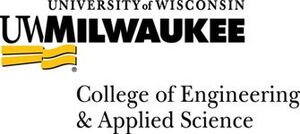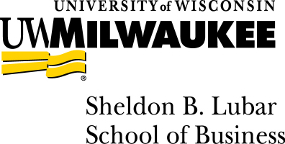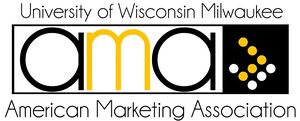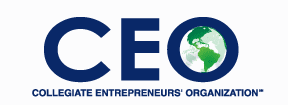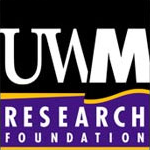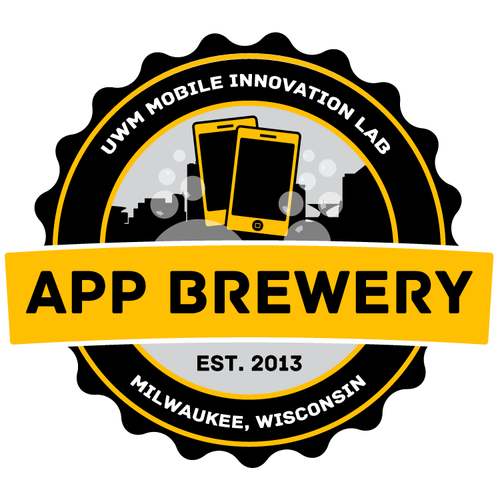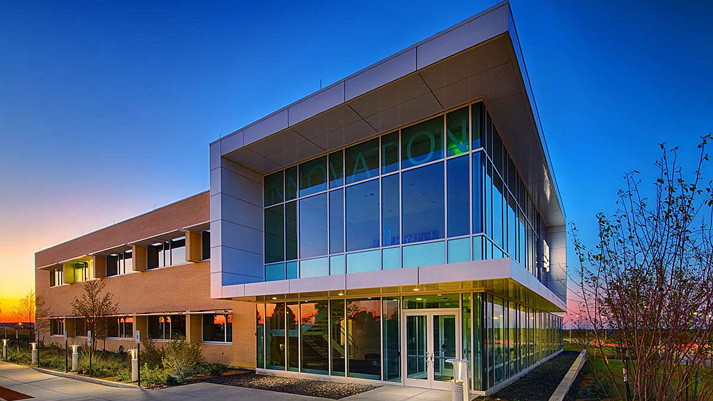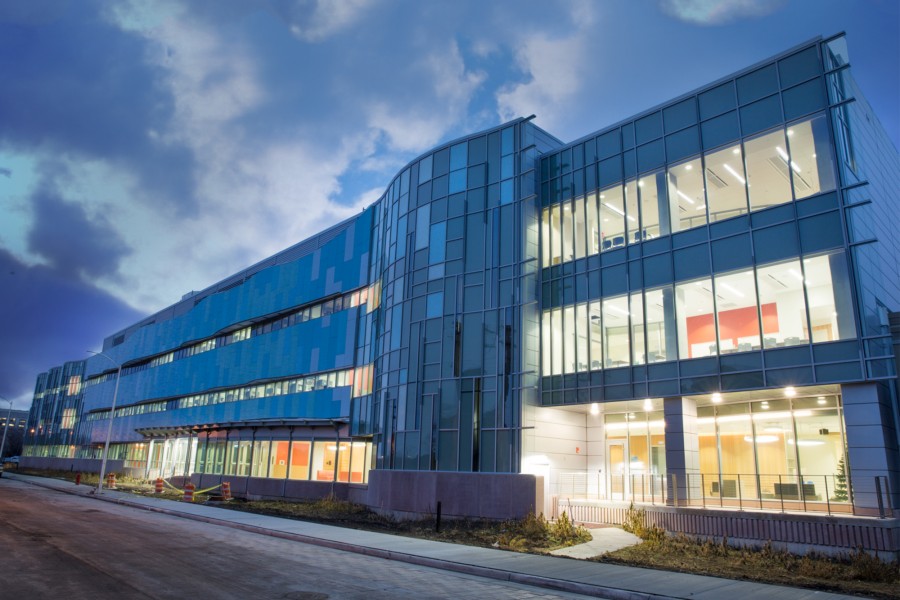School:University of Wisconsin Milwaukee
Contents
Overview
At the University of Wisconsin-Milwaukee there has been a steady build in what we call the “Innovation Engine”. In 2012, senior leadership at UWM set a plan in motion to ignite this innovation engine and since then it has been steadily burning while gaining momentum and attracting the masses. This movement began when the past Chancellor of UWM, Dr. Michael Lovell- then the Dean of the College of Engineering and Applied Sciences (CEAS)- began forging industry partnerships with local companies such as Ansys, General Electric Healthcare, Rockwell Automation, and Johnson Controls. As a result of these partnerships, new research opportunities began to flourish. The engineering faculty began collaborating in redesigned laboratories, state-of-the-art technical facilities, and engaged in revolutionary classroom instruction. This garnered much interest and support throughout the school and the effects reverberate through the senior leadership and the then Dean of CEAS, Dr. Mark Mone, who later became the Chancellor of the university. Dr. Mone also serves as the former Chancellor's Designee for Strategic Planning and Campus Climate. In his cabinet-level role as chancellor’s designee, Dr. Mone worked with the campus’ senior leadership, governance groups, and all stakeholders to develop UWM’s 2020 strategic plan, and develop and implement campus-level programs to improve the organizational climate.
To further grow the innovation engine, individual faculty stepped in from various departments. First through the business school was Dr. Kanti Prasad, then the Peck School of the Arts with Dr. Kim Beckman, followed by the CEAS/ UWM Research Foundation through Brian Thompson. Through outside investments, Dr. Prasad created the Sheldon B Lubar New Venture Business Plan Competition, where teams of students could develop business plans in competition to win initial seed funds used to start their companies. Dr. Beckman developed an artistic showcase through multiple artistry-centric courses where students can develop ideas to showcase in a public “maker space” that the University owns. Lastly, Thompson organized, taught, and runs the Innovation and Commercialization class. It was at this time that the Innovation Engine began to appeal to a new market...students.
PArticipation in these innovative activities grew quickly, and the need for more activities became apparent. Thus began the Scheinfeld Entrepreneur Fund, which was another business plan competition specific to students from the Lubar School of Business. Additionally, momentum in the engineering and art schools began to rise as Dr. Ilya Avdeev and Dr. Nathaniel Stern professors from each school respectively, created a course called Product Realization, where students focus less on the business plans and more on developing their business prototypes by working with real industry partners. In 2012, various groups on campus were led by faculty members Brian Thompson, Ilya Avdeev, Nathaniel Stern, and Michael Hostad to create the campus-wide Student Startup Challenge. This is the universities premiere student accelerator that focuses on developing student businesses while utilizing the lean startup methodologies and focuses on developing products and talking with customers. This competition brought many groups and resources together by allowing the entire university, students, and faculty alike to take some sort of ownership or affiliation with the Student Startup Challenge through candidates that work to develop prototypes, quick pitches, and develop business models from research or individuals’ ideas from all departments of the university.
There are new classes each semester catering towards entrepreneurship and student participation is at an all time high with three active student organizations: Collegiate Entrepreneur’s Organization (CEO), American Marketing Association (AMA), and Prototyping Club. Additionally, there are many smaller, more niche student organizations that are entrepreneurially focused, such as the video game design organization and the Society of American Engineers (SAE). The UWM Research Foundation has expanded its entrepreneurial initiatives by hiring their first ever Entrepreneur-in-Residence and UWM has been named as a Pathway School. The innovation engine does not stop here- UWM is determined to ensure ever lasting change by committing to collaboration and innovation by opening a brand new innovation campus about 15 miles west of the main campus that focuses on developing a world-class, public-private research park that spurs strong and enduring partnerships between academia and industry. The goal is to develop new products, spin off businesses, workforce development and jobs in the fields of healthcare informatics, biomedical engineering, and advanced manufacturing & energy.
In 2018, the construction of the Lubar Entrepreneurship Center (LEC) began. The center was started from a lead gift from Marianne and Sheldon Lubar. This 24,000-square-foot facility was a space designed for co-working/collaboration, flexible instruction, innovation labs, makerspaces, and launch space. The LEC allow students and entrepreneurs to meet informally to share ideas along with providing resources for prototyping and learning. The building will complete its construction in Spring 2019 and will be open to the public, helping to transform UWM's entrepreneurial role in the Milwaukee region by expanding the entrepreneurship programs in the Lubar School of Business.
University Innovation Fellow Candidates:
Fall 2021- Allyn Lottouzee, Antonina Johnston, Rudi Marciniak, Manny Garmendez, Ariel Pershman
Fall 2019 - Caleb Marks, Grace Rogers, Elizabeth Gallagher, Collin Roberts
Fall 2018 - Kaitlyn Jankowski, Justin Davis, Mitchell Merz, Ilian Iliev
Spring 2018 - Madeline Horinek
Fall 2015 - Aaron Davis, Tahereh Hosseini, Rustin Bergren, Cori Engdahl
Spring 2015 - Amin Mojtahedi, Nicole Green, Garry Jean-Pierre, David Gallegos
Spring 2014 - Alex Francis, Carlton Reeves, Rob Salamon
Innovation and Entrepreneurship on Campus
Promoting Student Innovation and Entrepreneurship
Students showcase their involvement in entrepreneurship through three key student organizations: Collegiate Entrepreneurs Organization, American Marketing Association, and Student Entrepreneurship Startup Organization. In addition to these opportunities students now have access to the Prototyping Club at UWM, which was founded in the Spring of 2017. This club focuses on using design thinking and the innovation process to create projects as a club, or encourage individual inventions. The Prototyping Club helps to oversee the Makerspace in the Engineering Mathematics and Science Building at UWM, and many of their projects involve the space or using the tools in it. The Business School hosts the Scheinfeld Entrepreneur Fund, which is another business plan competition and they provide seed capital for promising student startups. The other major initiative is the campus wide, multidisciplinary, collaborative Student Startup Challenge, that helps students formulate teams in hopes of developing a prototype and launching a business. This challenge also provides seed capital to budding student entrepreneurs.
At the University of Wisconsin-Milwaukee student innovation and entrepreneurship has been the foundation for our new Lubar Entrepreneurship Center. Opening in Spring 2019, the state-of-the-art entrepreneurship center will be in a 24,000 sq. ft. facility providing Innovation Labs, Makerspaces, Touchdown, and Launch Spaces. Spanning over multiple education disciplines, the center will create a focal point for entrepreneurship education on the UWM campus.
https://i.ytimg.com/vi/BY9dPmHmXi0/maxresdefault.jpg
Encouraging Faculty Innovation and Entrepreneurship
At the University of Wisconsin-Milwaukee, faculty are urged to forge partnerships with local businesses to collaborate on research projects and develop new technologies. The UWM Research Foundation is an auxiliary resource for the university and the catalyst on campus for faculty innovation with the goal to provide opportunities for faculty and staff to gain venture funding, develop intellectual property, form a business unit, and truly go out and create a business. The UWM Research Foundation has created a set of programs designed to bridge the gap between research and commercialization. These programs target a range of activities from early discovery through commercialization. The Research Fellows Program provides grants to graduate students over and above other types of support; these "kicker grants" help UWM faculty in key areas to attract and retain the best and brightest students who play a critical role in their research programs. The Catalyst Grant Program provides seed funding to research projects with high potential for return on investment - through commercialization or ability to attract funding from other sources. The objective with faculty entrepreneurs is also to promote corporate partnerships and startup companies in hopes that they can commercialize ideas as they reach later stages of maturity. Underlying all of these activities is the management of intellectual property - which including assessing ideas, protecting intellectual property through patents and copyrights as well as licensing activities.
Faculty Leadership Circle:
UWM Chancellor: Dr. Mark Mone
College of Engineering and Applied Science: Dr. Ilya Avdeev (avdeev@uwm.edu)
Peck School of the Arts: Dr. Kim Beckman (kbeckman@uwm.edu); Nathaniel Stern (sternn@uwm.edu)
UWM Research Foundation: Brian Thompson (President, briant@uwmfdn.org); Carlton Reeves (Entrepreneur in Residence, reevescj@uwmfdn.org)
UWM Director of Web and Mobile Strategy: Mark Jacobson (markj@uwm.edu)
Faculty and Student Collaboration
Connections and collaboration between faculty has produced successful start-up competitions and funding opportunities for students. Moving forward, students and student organizations will establish a coherent engine of their own alongside their faculty role models with a Student Leadership Circle. Student leaders in organizations like CEO, AMA, and SESO which focus on entrepreneurial thinking will lead collaborative projects to prepare students for these on-campus idea and start-up competitions. Collaboration will not be limited to entrepreneurial organizations but encompass other disciplines which act as a valuable resource to the budding entrepreneur at UWM. Resources in the engineering department such as the Society of Automotive Engineers (SAE) or the American Society of Mechanical Engineers (ASME) are available as a fantastic technical resource for product design and development.
In the Spring of 2014 the University Innovations Fellow candidates at UWM plan to bring this Student Leadership Circle together for the first time for a kickoff event. Leaders from various student organizations will help lead teams of innovative students through the opportune program from 3DS. Meanwhile, the Faculty Leadership Circle will be able to provide valuable resources such as campus space, publicity for their competitions, and guidance for new ideas.
UWM Innovators Expo
An all campus event that showcases all “Innovators, Creators, and Entrepreneurs” on the UWM Campus. It serves as an end of the year celebrationfor these people to be the main event for the campus to see the research, programs, startups, student orgs, contest winners, and support among the innovation ecosystem.
University of Wisconsin Milwaukee is a large campus with a big innovation ecosystem that includes many initiatives. We wanted to find a way that all of these people, orgs, programs could be represented in one evening so the community surrounding UWM can see what our University has been doing.
The Innovators Expo is also important for the UWM community to be exposed to other components on campus. The business, engineering, freshwater science’s, art and more all have some innovation and entrepreneurial activities happening. The event is a seed that has been planted, hoping to grow within an active entrepreneurial and innovative ecosystem leading up to programing and events to be housed in the new Lubar Center for Entrepreneurship on campus.
Supported
The event is made possible by Sheldon B. Lubar School of Business, UWM Research Foundation, Student Startup Challenge, and University Innovation Fellows. Each entity kicks in funds to support and the Fellows put in sweat equity.
Short Program
Key stakeholders on campus for innovation and entrepreneurship speak about their support for the ecosystem. These stakeholders include Pathways members Ilya Avdeev and Brian Thompson as well as the UWM Chancellor Mark Mone, and business school dean Kanti Prasad. Their insights and discussions showcase entrepreneurial activity on campus, competitions, new startups, and building activities for the brand new entrepreneurship center.
Innovating Innovation
For the 2020-2021 school year, this Innovation Expo went virtual due to the novel COVID-19 pandemic. MAde possible through the innovation of Student Startup Challenge Entrepreneur Ross Younger, participants and guests were led through a virtual tour to different posters throughout the "LEC."
Connecting Startups with Funding
A counsel will be helping students looking for funding to create start ups. Students will be able to view different funding options available with deadlines for the year. Students will be able to select different funding options they are interested in applying for. The student will submit their interest through the site. The counselor will reach out to the student with a meeting time to discuss how to best apply and what materails to bring to the meeting. During the meeting, the counselot will be able to guide the student as to where they are in the start up development to what funding makes the most sense for them - does the student need to have a business plan pulled to gether, or merely a product to pitch to apply to different funding. The counselor will be able to connect or guide students to other resources on campus if their pitch is needing development prior to applying
Facilitating University-Industry Collaboration
At UWM, we strive towards creating mutually beneficial university-industry collaborations. Traditionally, our largest industry collaborators have been Ansys, General Electric Healthcare, Rockwell Automation, and Johnson Controls. These companies have assisted in research projects, laboratory, and in some cases maintain facilities with personnel on campus working hand in hand with faculty, staff, and students. More recently, the University has begun developing new incubator spaces with the Innovation Campus, where UWM aims at developing a world-class, public-private research park that spurs strong and enduring partnerships between academia and industry leading to new products, spin off businesses, workforce development and jobs. For example the future of biomedical research is in translational research, which takes ideas from the lab to the patient bedside. At the same time, Southeastern Wisconsin’s manufacturing sector still employs significant numbers and is looking for ways to innovate and diversify.
Another branch within the Innovation Accelerator is the UWM Mobile and Innovation Lab but fondly referred to as the App Brewery. The Brewery works to create mobile apps that benefit the Greater Milwaukee Community while providing real world work experience to add to a student's portfolio. Partnerships include Wisconsin Medical College, Waukesha County Libraries, and nonprofits.
UWM’s Innovation Campus takes advantage of both these areas of strength by offering a place for partnership and proximity to encourage entrepreneurship, while also providing ways for technology businesses to expand and remain competitive.
On June 6, 2013, UWM broke ground on a 100,000 square-foot addition to the existing Water Institute, transforming the structure into the new graduate-level School of Freshwater Sciences harbor campus. The new space houses research support facilities, laboratories, teaching spaces and collaboration spaces.
Teaching Innovation
Classes that Utilize the Start-up Mentality
Product Realization
Companies need time and talent to develop new product prototypes. Students need real world experience. The ANSYS Institute’s “Product Realization Course” brings these groups together. Students design, test and produce a prototype for companies that offer funding and mentorship. Aurora Healthcare, Eaton Corporation, Rexnord, BizStarts and the Medical College of Wisconsin are just some of the organizations that have used the class to take their ideas to the next step.
How It Works
The Product Realization course is a regular course offering. Industry sponsors pay a fee to cover expenses and provide engineering personnel to mentor their student project team. The multidisciplinary approach has real benefit. The course is co-taught by an engineering professor and an art professor. Students form interdisciplinary teams of engineers, artists and designers. They review the company’s product brief, determine a budget and timeline, then design and build the prototype.
Ilya Avdeev, Ph.D, assistant professor of mechanical engineering, and Nathaniel Stern, Ph.D., associate professor of art and design and head of digital studio practice in the Peck School of the Arts, collaborate and oversee the 15-week process. Some of the projects have included eye-tracking software, wheelchair design, wave energy collectors and personal lighting devices for roadside emergencies.
The ANSYS Institute gives students hands-on access to computer-aided-engineering capabilities; a versatile A/V presentation system; studio space with workbench areas for physical prototype development and assembly; and equipment for rapid-prototyping, reverse engineering and rapid product development. Teams operate in an open lab environment that encourages a free exchange of ideas across groups.
Innovation and Commercialization
In order to compete in the economy of the 21st century, successful engineers and business leaders must not only understand technology, but they must also understand the process of bringing ideas to market. Innovation is the process of developing ideas and bringing those ideas to market. This course covers the basics of innovation and commercialization – the process of moving concepts from the idea stage to successful products and services in the marketplace. This course will draw on “lean launch” methodologies used in early-stage business formation (including the business model canvas, the customer discovery process and rapid iteration around a minimum viable product – MVP), and it will offer a taste of “design thinking”. In addition, this course will develop specific content areas and skills useful in engineering and technology ventures for both early stage and later stage businesses including intellectual property, venture finance, and financial modeling. The skills developed in this course are intended to be valuable to an individual launching their own business as well as to individuals who want to excel in existing enterprises large and small.
Entrepreneurship Certificate
As you advance in your career, you’ll need to be an entrepreneurial thinker. New ideas and innovation are what help companies grow. Whether you want to launch your own business, work in a smaller firm, or even work in a large competitive company, it’s important that you understand what it takes to develop an idea, product, or process into a new business or to help an existing company expand.
Entrepreneurship Certificate students gain the knowledge and skills needed to assess new business opportunities, obtain financial resources, market and start new ventures, and manage entrepreneurial ventures for growth and profitability. As part of the certificate program, you will develop a business plan and present it to faculty and entrepreneurs for feedback, giving you a real flavor of what it takes to get a business off the ground.
The certificate is open to all undergraduate business and non-business majors, and to students who have previously earned a bachelor’s degree from UWM or any accredited college or university.
Entrepreneurship Certificate Coursework (15 credits)
Required courses (12 credits):
BUS ADM 447 Entrepreneurship
BUS ADM 458 Venture Finance
BUS ADM 466 Business to Business Sales and Marketing
BUS ADM 492 Business Modeling of New Ventures
Students choose at least one additional course from the following (3 credits):
BUS ADM 380 Introduction to Real Estate
BUS ADM 444 Human Resources Management
BUS ADM 450 Intermediate Finance
BUS ADM 462 Marketing Research
BUS ADM 465 International Marketing
BUS ADM 467 Marketing Seminar
BUS ADM 490 Entrepreneur Internship
BUS ADM 495 Special Topics in Business – (Entrepreneurial topics)
Non-business students completing the certificate will need to complete additional coursework:
ECON 103 Principles of Microeconomics
ECON 104 Principles of Macroeconomics
BUS ADM 201 Introduction to Financial Accounting
BUS ADM 210 Introduction to Management Statistics
BUS ADM 330 Organizations
BUS ADM 350 Principles of Finance
BUS ADM 360 Principles of Marketing
The most up-to-date requirements and course descriptions can be found in the Undergraduate Catalog.
Classes that Encourage Industry-Academic Collaboration
Central to the School of Architecture and Urban Planning's educational philosophy is the fundamental principle that excellence in design and research involves direct and extended interaction with design professionals and culture. The School’s sponsored studio program provides this enhanced access to the profession and affiliated businesses for faculty and students. Each of the sponsored studios focuses on a unique aspect of design and includes the engagement of professionals from architecture, development, material design, manufacturing and building management with students in the studio environment. The business partners provide funding to support studio activities, travel, lectures, publications and materials.
Design Intelligencesays the School's program is "an amazing symbiosis between practice and education."
The sponsored studio program is based on a mutually beneficial, multi-year arrangement between SARUP and the business partner. Two such studios, the IP BIM Studio, coordinated by Associate Professor Gil Snyderand Adjunct Professor Jim Dickerin collaboration with Eppstein Uhen Architects, and the Workshop Studio conducted by Associate Professor Brian Schermerin conjunction with Workshop Architects, have received NCARB Prizesfor their integration of practice and the academy. Students from a number of sponsored studios consistently participate in a variety of national and international competitions resulting in a host of awards and opportunities.
David Kelley, founder of IDEO, once said: “Designers are more trusted and integrated into the business strategy of companies”. Design Thinking Studio is an experiential and human-centered design course whose goal is for students to come up with innovative design solutions which could boost engagement, productivity, performance, collective learning, and ultimately, individual and organizational growth in work and learning spaces. Design solutions can vary in scale – from a single piece of furniture to a configuration of larger program spaces – and/or in strategy – from introducing new physical objects to incorporating new technologies into the space.
To inspire students, the class will be visiting and exploring some of the exemplary workplaces in Milwaukee and Chicago. Moreover, they will have the opportunity to talk to experts in the field. Accordingly, students will be introduced to the Design Thinking Framework to develop their innovative design solutions for work and learning spaces. The solutions will be collected in a catalog and will eventually be evaluated in review panels based on their innovative potential to impact the architecture/design industry.
- Area of Focus
Areas of focus include but are not limited to innovation in: architecture industry, design industry, knowledge management strategies, and learning methods. Some examples of solutions might include: physical-virtual coupling in work and learning spaces, using sensor-network technology to evaluate work and learning spaces, smart workplace furniture, design patterns to increase the likelihood of collisions and serendipitous encounters, etc.
- Experiential Learning Opportunity
The class is designed around the experiential learning model. As students go through the Design Thinking Framework, they have to observe and talk to users directly, capture and analyze the dynamics of work and learning spaces, articulate problems and opportunities, ideate in teams and share their solutions with users to receive feedback and iterate, and finally, provide something for the user to be able to interact with.
There will also be review and mentoring sessions in which innovators, entrepreneurs, and people with expertise in innovative learning methods and workplace strategies will help students throughout the process.
- What to Achieve
The learning goal on the individual level is to influence the identity of students to become entrepreneurial learners – a generation of learners who constantly look around for new ways and new resources to learn new things and generate new ideas.
The learning goal on the collective level is for students to work together to create a collective catalog/portfolio including all of their innovative solutions that can change work and learning
Related Links
University of WIsconsin Milwaukee
Fall 2021 -
Fall 2019 -
Fall 2018 -
Kaitlyn Jankowski
Spring 2018 -
Fall 2015 -
Rustin Bergren
Cori Engdahl
Spring 2015 -
Spring 2014 -
Other Fellows:
Related links

